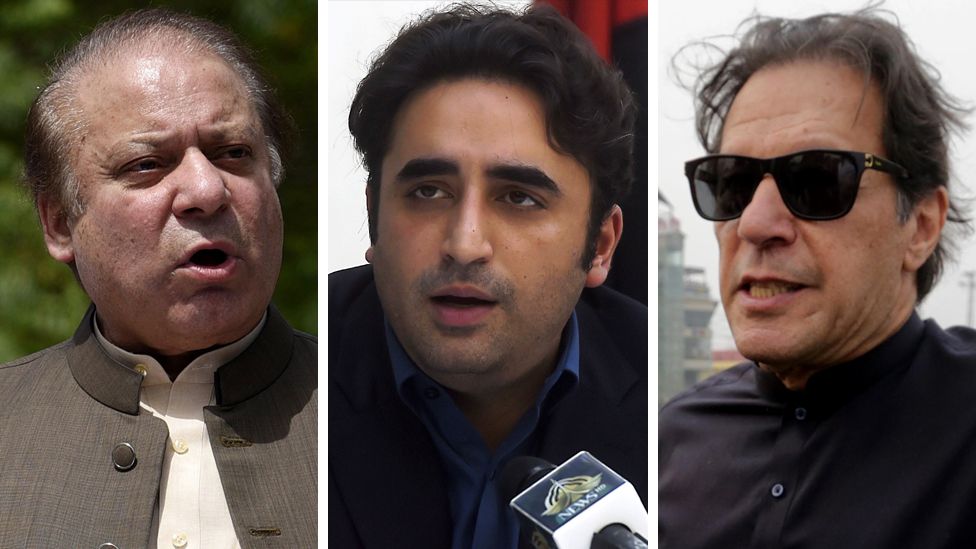Tens of millions of Pakistanis head to the polls today (08) to vote in a new government amid soaring inflation, rising violence and claims of rigging.
The election comes almost two years since the previous prime minister, cricketer-turned-politician Imran Khan, was ousted in a no-confidence vote.
Khan was later jailed on corruption charges and is barred from standing.
Three-time PM Nawaz Sharif is on the ballot. Many analysts say it’s Pakistan’s least credible election yet.
Strict rules around election coverage – including what can be said about candidates, campaigning and opinion polls – remain in place until the end of voting at 1700 local time (1200 GMT). Results have to be released within two weeks.
As many as 128 million people are registered to cast their votes, with almost half under the age of 35.
They will choose between more than 5,000 candidates – of whom just 313 are women.
The Pakistan Muslim League (Nawaz) (PML-N) and the Pakistan People’s Party (PPP) were considered the two major parties going into the vote.
However, picking out candidates from Khan’s Pakistan Tehreek-e-Insaf (PTI) party has been made more difficult, after it was banned from using the cricket bat symbol under which all its candidates run. Electoral symbols play a key role in a country where more than 40% are unable to read.

The PTI allege other tactics have been used to prevent their candidates winning seats as well, including being locked up, banned from holding rallies and forced underground.
Khan is serving at least 14 years in prison, having been sentenced in three separate cases in the space of five days last week. He still faces some 170 charges in different cases, his lawyers say. The PTI alleges interference by Pakistan’s powerful military, with whom Khan is said to have fallen out before his fall from favour.
But people will be able to vote for Nawaz Sharif – the PML-N leader, who at the time of the last election was beginning a sentence for corruption.
The former PM was ousted in a 1999 military coup and had his third term cut short in 2017 – but he recently returned from self-imposed exile and had his lifetime ban on holding office, along with his criminal record, wiped clean at the end of last year, allowing him to stand for what would be a record fourth term.
However, whether any party can win a majority – which requires 169 seats in the 336-seat National Assembly – is not yet clear.
Millions have been hit hard by the country’s economic woes, which were exacerbated by devastating floods in 2022. Inflation is soaring, and people are struggling to pay their bills.
Across the country rising violence is also a concern.
According to the Islamabad-based Center for Research and Security Studies (CRSS), 2023 saw violent incidents increase for the third year in a row in Pakistan, with the most recorded fatalities – including security forces, militants and civilians – since 2017.
Being involved in politics itself has proved dangerous. On Wednesday – less than 24 hours before the first voters cast their ballots – two separate attacks on candidate’s offices left more than 28 people dead in Balochistan province. Officials are also aware there could be further attacks on voting day itself.
Border crossings with Afghanistan and Iran will be closed for cargo and pedestrians today (08) to “ensure full security” during polling, a spokesman from Pakistan’s foreign ministry said. Tens of thousands of military troops and paramilitary soldiers have also been deployed to polling stations across the country.
The Election Commission of Pakistan has categorised half of the 90,675 polling stations as either “sensitive”, meaning there is a risk of violence, or “most sensitive”, indicating a higher risk. The classifications are based on the region’s security situation and history of electoral violence.
A high turnout will be key to the PTI’s chances, many analysts say. How to tackle, and who to blame for, the country’s economic crisis will be high in voters’ minds.
(BBC)